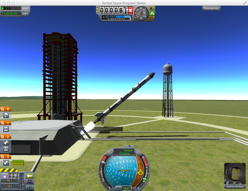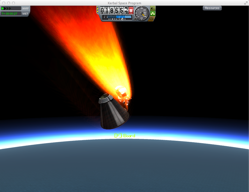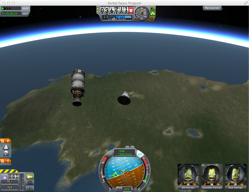Yesterday, Tim Holt wrote “Why I am At a Science Conference,” describing his work at this week’s Conference for the Advancement of Science Teaching (CAST), and why it is so important that we edubloggers and techspeakers should be sharing our messages into other communities of interest, science teachers for instance. I agree. I’ve tried, for years, to get into social studies conferences. When I succeed, it’s to do a concurrent session, and only 12 teachers showed up. It’s part of the nature of the profession, that we owe our professional identity to our particular area of specialty.
I have keynoted foreign language conferences, library conferences, administrator, and even book publisher, real-estate developer and farmer conferences. Perhaps the most receptive to my particular message are school boards conferences. But Tim is right. Little of this actually makes it into classrooms, especially the “Common Core” classrooms.
Holt referred to the fact that I too will also be speaking to Science teachers this week, in Charlotte, at one of the regional conferences of the National Science Teachers Association – and my efforts to tailor my presentation to that audience. I admit some concern about speaking to science teachers, because I taught social studies, and my examples tend to be more social studies oriented – though I would maintain that any good social studies teacher is also teaching science, math, health, literature, and everything else. It’s all societal.
Tim mentioned me because of a string of posts I made to Facebook and Twitter yesterday, reporting my progress in playing with Kerbal Space Program, a sandbox-style game that has the player designing, building, and flying space craft, on missions from the planet Kerbal. It’s been fun, regardless of my immigrant clumsiness with video games – though I am experiencing some pride in finally getting a manned (well a Kerban-piloted) space craft into orbit. It cost the lives of 12 fellow kerbans and several billion $kerbols worth of hardware. 😉
Holt writes,
And although (David’s) message is VERY general, it is at least a start. He is trying to tailor the message to the audience by demoing the Kerbal Space Program online game (https://kerbalspaceprogram.com) so good for him. But those opportunities are few and far between.
These opportunities rare and priceless. ..and forgive me if I seem overly sensitive and even defensive, but there is nothing general about this. The message is singular and it is revolutionary. It has nothing to do with, “Look, here’s something that you can do in your classroom with technology.” It is,
“Look, here’s what many of your students are doing outside your classroom. It’s fun, but it’s work. It’s hard work. And it is entirely about learning. The energy of our students’ youth culture is not based on how high you can jump or fast you can run. It is neither wit nor the appealing symmetry of your face. The energy of their culture is the ability to skillfully and resourcefully learn and to inventively employ that learning.”
My message is that children are entering our classrooms with learning skills that, although based on long understood pedagogies, they are skills that we are too often ignoring and sometimes even handicapping. When I say that we “chop their tentacles off,” it’s not about cutting them off from technology. We’re amputating their access to the learning skills that they are so effectively developing outside our classrooms – their avenues to personally meaningful accomplishment.
Perhaps those of us who have chosen to pursue education technology or have been seduced by its potentials are in a unique position to notice our children’s ’native’ learning skills – more so than science or social studies teachers. But we all must be careful to shed the glow of tech, and get right down to the point of being educated in this time of rapid change.
It’s not about being taught.
It’s about becoming a learner.




It is almost unfathomable that we have arrived to the age of The Jetson’s. I remember watching them talk to and touch screens, have food cooked from squares, and travel in flying cars. We’re there, iPads, MRE’s, and I saw a flying car on the news! How did we do it if only a select few educators have begun using technology in the classroom? I’ll tell you how, through our own students intellect and resourcefulness. We are preparing students for jobs that do not yet exist, and to use tools which they themselves will develop. If we can open our minds to the possibilities that are out there, we could open so many more doors for our students and future leaders.
Hello! I am a pre-service chemistry teacher and have just stumbled across your blog. This post certainly caught my eye, particularly this part: “We’re amputating their access to the learning skills that they are so effectively developing outside our classrooms – their avenues to personally meaningful accomplishment.” I could not agree more. Today’s teenagers are growing up in a highly interconnected world, constructing their identities in shared digital spaces, making friendships that span the globe, mastering extremely complex video games, and constantly communicating parts of themselves to the world. My little sister is 19, a freshman in college. Her degree of “plugged-in-ness,” in contrast with my own at her age (a mere 7 years ago) is mind-boggling. She’s a passionate activist for many wonderful causes, and most of her education about these issues has come from her self-motivated exploration of the world through the internet.
Given this context, it seems truly absurd to run classrooms cut off from the chaotic smorgasbord of information that comprises the modern world. This is especially true when our students have developed at least some of the skills necessary to navigate this chaos. I think it is our obligation to actively nurture and shape those skills. Teens and pre-teens certainly abuse the wonders of the internet on a regular basis. Perhaps this could be curtailed if school stepped in to teach them the (morally) “right” way to interact with the internet and the other people we encounter in it. Then students would be, as you put it in another post, *empowered* to continue learning once they move on from our classrooms.
Thanks for a great post. I will be ruminating on this idea as I decide how to develop my own practice.
hello…………. nice article i m impressed by it especially the line ” The energy of their culture is the ability to skillfully and resourcefully learn and to inventively employ that learning.” the truly motivating article